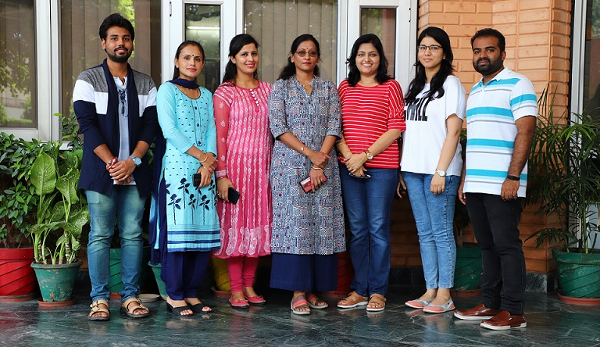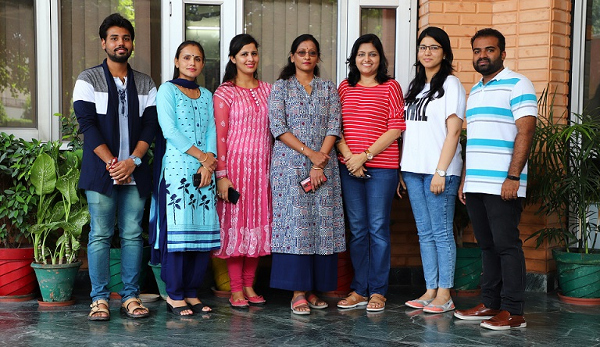The use of stem cells in regenerative medicine remains a challenging task because of problems associated with the survival of transplanted cells. Stem cells, when transplanted on a wound site, release chemicals called paracrine factors which stimulate other cells in the vicinity to initiate tissue regrowth. A group of Indian scientists has developed an injectable hydrogel that can help transplanted stem cells survive longer.
Researchers from the Mohali-based Institute of NanoScience and Technology have devised a method to encapsulate adult stem cells called Mesenchymal Stem Cells (MSC) in an injectable hydrogel. In preliminary studies, it has been found that the hydrogel exhibits cell viability and can support long-term survival of stem cells.
The injectable hydrogel has been derived from natural materials like cellulose and chitosan (found in seashells) and it biodegrades in about a month. The hydrogel was fabricated by connecting an aldehyde group with an amino group by employing a method called the Schiff base reaction.
“The hydrogel addresses the issue of the long- term survival of adult stem cells in simulated cultures that mimic the actual body tissue. We observed that cells survive and multiply for a period of one month, which is sufficient time for tissue regrowth,” explained Dr Deepa Ghosh, principal investigator of the study, while speaking to India Science Wire.

The hydrogel addresses the issue of the long- term survival of adult stem cells in simulated cultures that mimic the actual body tissue. We observed that cells survive and multiply for a period of one month, which is sufficient time for tissue regrowth ” :Dr Deepa Ghosh
The hydrogel supports normal functioning of the cells. Following implantation, the adult stem cells in the hydrogel grow and release paracrine factors to encourage tissue repair by inducing migration of cells from adjacent tissues into the damaged tissue, she added.
“The hydrogel has 95% water content, similar to tissue cells, indicating its potential to organise the cells into the tissue structure. Moreover, the gel is self-healing which means that it can readily take the shape of the wound site providing homogeneity and adhesion to the tissue after gelation,” described Jijo Thomas, the first author of the study.
Laboratory studies demonstrate the hydrogel has cell viability and supports bioactivity of stem cells. Cell compatibility assay and haemolysis assay were used to evaluate the hydrogel’s compatibility to cells and blood respectively. The hydrogel was seen to support the growth of stem cells in these cultures.
A testing method called the scratch wound assay established that the hydrogel facilitates the biological activity of the release of paracrine factors from the encapsulated stem cells. With the help of appropriate lab models, the performance of the hydrogel was tested with fibroblasts and chondrocytes — cells of skin and cartilage, respectively, that play a key role in repair. In response to the released paracrine factors, the repair cells began to migrate to the wound area, and this migration was monitored with a confocal microscope. “With successful results in simulated conditions, we are now exploring further, to test the hydrogel in animal models,” added Dr Ghosh
Source: VigyanPrasar
Image Courtesy: Vigyan Prasar
You may also like
-
New Heat-Based Approach To Cancer Treatment Can Reduce Chemotherapy Doses
-
Scientists Take A Major Step Towards Unification Of Classical & Quantum Gravity
-
India Graphene Engineering and Innovation Centre (IGEIC) Under the Vision of Viksit Bharat@2047 Launched
-
New High-Performance Gas Sensor can Monitor Low Level Nitrogen Oxides Pollution
-
Antidepressant Drug can be Repurposed for Treating Breast Cancer
